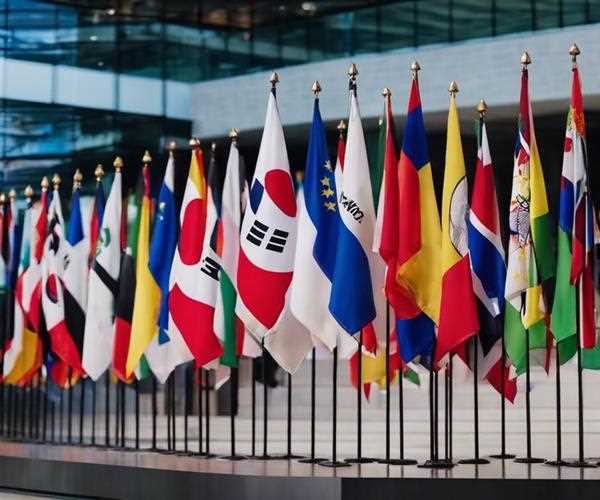Overview
Trade wars refer to economic disputes that occur when countries put trade barriers in place, such as tariffs, to counter what is believed to be unjust trade practices. Such conflicts generate spiraling cycles of reprisals, through which measures are applied to curb imports or exports; these implications affect international trade.

Tariffs and Trade Barriers: The main weapon used in a trade war is the tariff, a tax levied on the importation of products. Governments can also rightly raise the tariffs on certain imports to shield an industry from its competitors. This usually results in costly products for the consumer, and this may lead to a poor balance of trade between the two countries involved. Others can be limited allocations, complete bans of importation, or even upgrades of required standards.
Trade wars typically stem from a variety of factors, including:
Trade Imbalances: Economies may think they are exporting less while importing more, hence feeling that they are on the receiving end unfairly.
Subsidies and Dumping: If one country provides subsidies to its industries or undercharges its exports, it is considered that the country is indulging in the export of products below cost.
Intellectual Property Theft: It is worthy of note that any threat to free trade previously mentioned causes tension so that countries can act on ways of protecting their innovations.
Economic Impact: Trade wars do come with substantial economic implications for all the parties involved in the conflict or war.
While they may aim to protect domestic industries, they can also lead to:
Higher Consumer Prices: The effects of tariffs are that they raise the price of goods that are imported, thus making it expensive for the consumer to afford to buy them.
Supply Chain Disruptions: Particularly those companies that depend on global value chains will experience cost fluctuations and a longer time than before, thus a potential downside to the country’s economy.
Job Losses: Export-oriented industries may see their demand plummet in foreign markets, which will result in employee layoffs.
Global Response: This is normally observed where trade wars are involved; the international community will engage in a diplomatic move to resolve conflict. Bodies like the World Trade Organization (WTO) engage themselves in negotiations as well as offering a forum for complaint handling in the trading process. They may also want to negotiate new trade deals or even work to defend a current one against the effects of a trade war.
Historical Examples: Some of them include the ongoing U.S.-China trade war that started in 2018 following the imposition of tariffs on China’s imports to the U.S. due to alleged unfair trading practices. This led to other retaliatory tariffs, which affected different sectors and supply chains across the globe. Other past examples include the Smoot HAWLEY tariff Act of 1930 in the U.S. with the effects of increasing the tariffs on hundreds of imports, thus contributing to the Great Depression.
Trade war refers to an economic conflict that has the potential to have extensive effects on trade, economy, and relationships among countries. Thus, by identifying the causative factors of the disputes and their implications, users will be in a better position to deal with the challenges arising from such expositions.
You can also check out Amazon falls back by strike, protests over European reign during Black Friday Trade